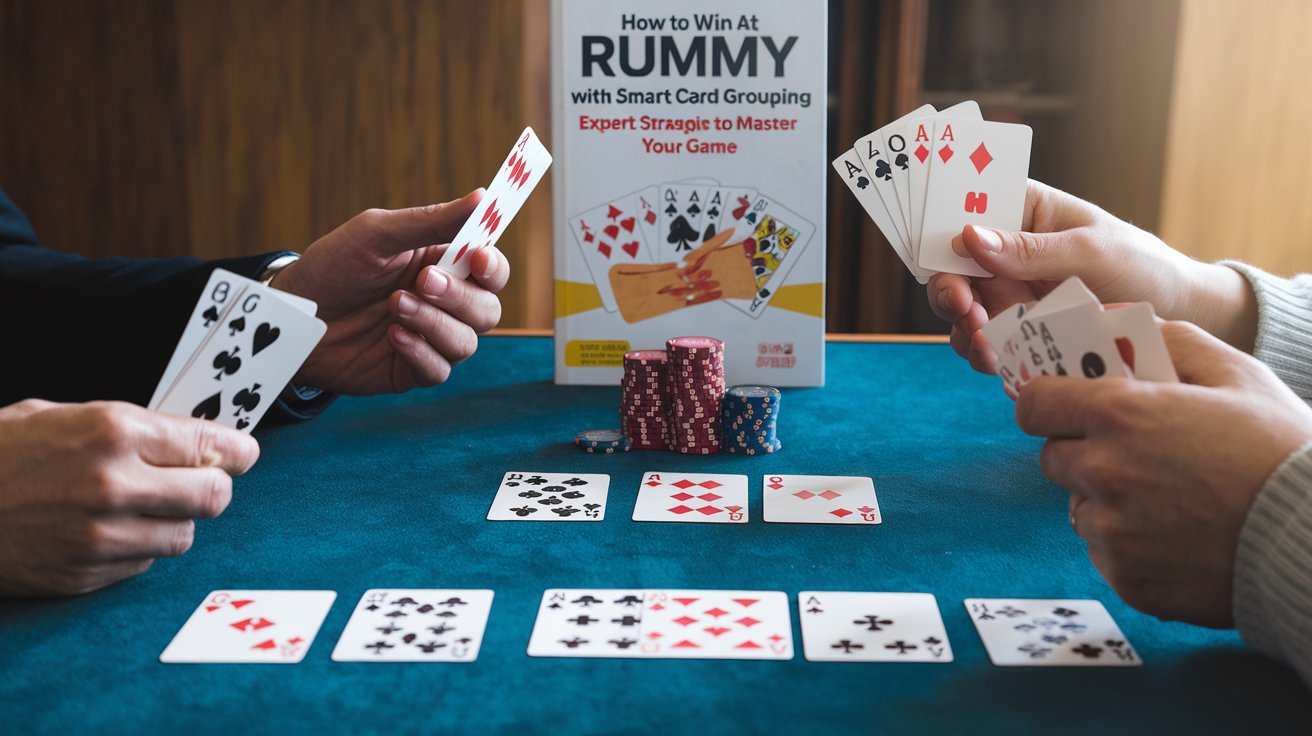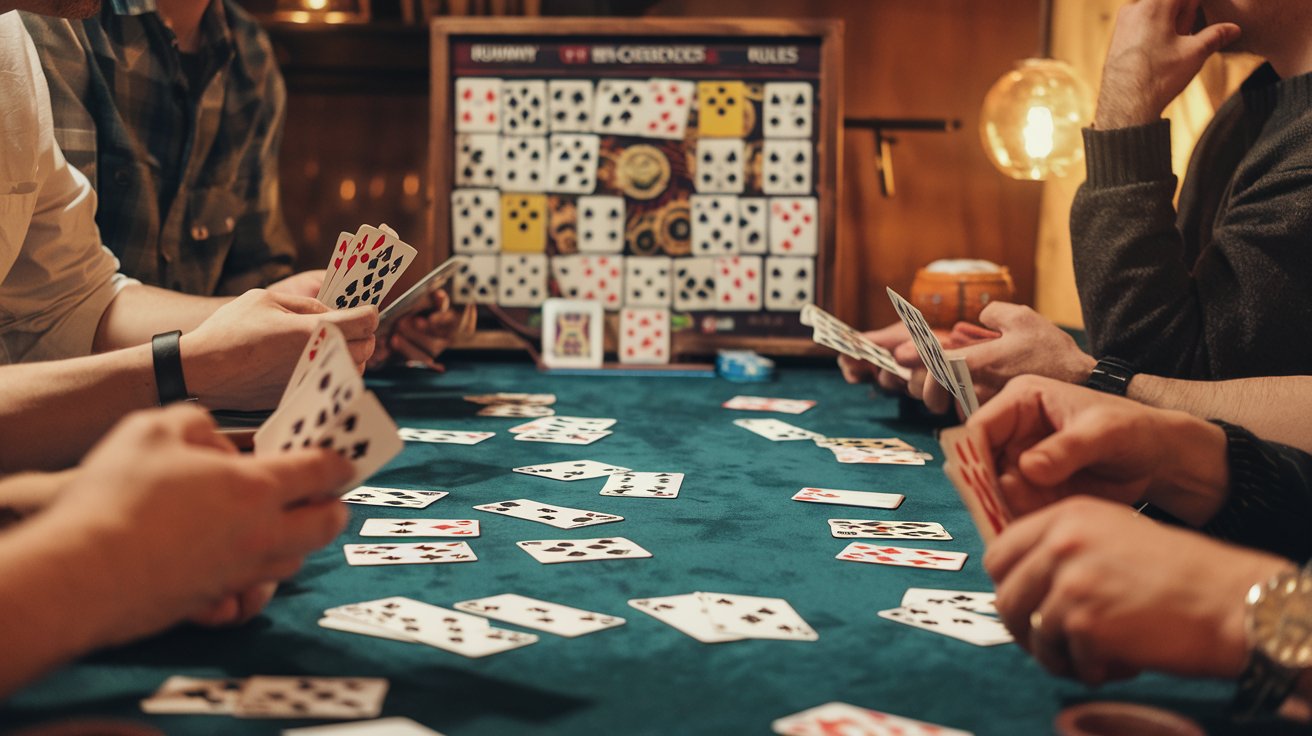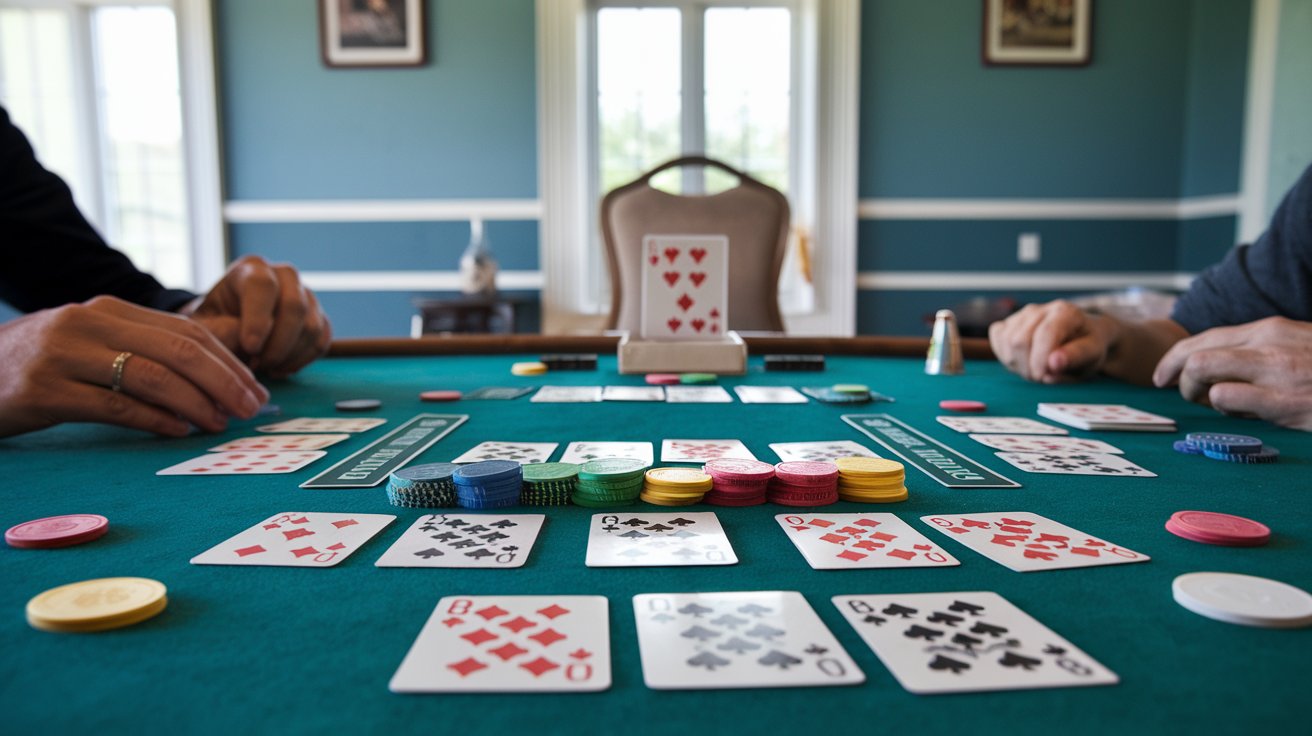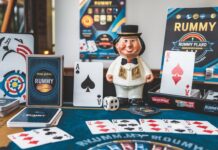Competitive Rummy isn’t just a game of luck—it’s a battle of wits, strategy, and acute observation. In high-stakes tournaments and fast-paced matches, the ability to keenly observe every move can be the difference between victory and defeat. In this comprehensive guide, we’ll delve deep into the importance of observation in competitive Rummy, uncover the secrets behind reading opponents and the table, and share actionable tips to sharpen your observational skills. Whether you’re an aspiring tournament player or a passionate enthusiast, this blog will equip you with insights to elevate your game.
Introduction: Why Observation Matters in Rummy

In the world of competitive Rummy, every card played, every discard made, and every subtle twitch can provide a wealth of information. Observation isn’t just about noticing what’s on the table; it’s about understanding the entire flow of the game and using that knowledge to make calculated decisions. An astute observer not only enhances their own strategy but also anticipates opponents’ moves, identifies weaknesses, and manipulates the game in their favor.
SEO Keywords: competitive rummy, observation in rummy, rummy strategy, read opponents in Rummy
Understanding Competitive Rummy
Rummy is a game that revolves around forming valid melds—sequences or sets—before your opponents do. While the rules may seem simple, competitive Rummy is anything but straightforward. In tournaments or high-stakes matches, every decision counts. Successful players know that beyond memorizing the rules, mastering the mental game is paramount. This includes keeping track of which cards have been played, what your opponents might be holding, and adapting to the ever-changing landscape of the game.
The Elements of Competitive Rummy
-
Strategy and Tactics: Winning requires more than just playing your cards—it involves planning moves ahead, blocking opponents, and sometimes even bluffing.
-
Psychological Warfare: A cool head under pressure can give you a psychological edge, making your opponents second-guess their moves.
-
Observation: This is the cornerstone of advanced play. Being observant can provide clues about opponents’ strategies and help you decide which card to pick or discard next.
SEO Keywords: competitive Rummy strategies, advanced Rummy tips, mental game in Rummy
The Critical Role of Observation

Observation in competitive Rummy is the art of reading both the game’s pace and your opponents’ behavior. By paying close attention to details, you can uncover patterns and gain insights that are not immediately obvious. Here’s why observation is so critical:
-
Identifying Patterns: By keeping track of discarded cards, you begin to notice patterns—what suits or numbers are frequently discarded and which are being held back by your opponents.
-
Anticipating Moves: A keen observer can predict the next move by understanding the game’s rhythm and the psychological state of opponents.
-
Mitigating Risks: With strong observational skills, you can avoid pitfalls, such as discarding a card that could help an opponent complete a meld.
-
Enhancing Memory: Continuous observation improves your memory, allowing you to recall the cards played during previous rounds—a critical asset in Rummy.
SEO Keywords: observation skills, anticipate moves, read opponents, memory in Rummy
What to Observe in a Rummy Game
Observation in Rummy involves several layers, from the cards themselves to the subtle body language of your opponents. Let’s break down the key aspects you should focus on:
Observing Card Discards and Pickups
-
Card Discards: Every time an opponent discards a card, take note. Is it a high-value card, or something that might belong to a potential sequence? Discard patterns can indicate whether they are forming a set or sequence.
-
Card Pickups: Observe which cards are being picked up from the discard pile. If an opponent consistently picks up a certain suit or number, they may be assembling a specific meld.
-
Frequency and Timing: The frequency with which a card appears or is discarded can signal its importance. For instance, if a card is repeatedly avoided, it might be the key to an opponent’s strategy.
SEO Keywords: card discards, card pickups, Rummy observation techniques, pattern recognition in Rummy
Reading Opponents’ Body Language and Behavior
-
Facial Expressions and Gestures: Even in a game centered around cards, body language speaks volumes. A slight smile, a frown, or a hesitant movement can reveal confidence or uncertainty.
-
Betting and Timing: In competitive Rummy tournaments, the time an opponent takes to make a decision can indicate their level of confidence. Quick decisions might suggest a well-formed strategy, whereas hesitation could signal uncertainty.
-
Emotional States: Keep an eye on your opponents’ emotional reactions. Do they seem frustrated after a bad hand, or overly confident after a big win? Understanding these emotional cues can help you tailor your own strategy.
SEO Keywords: reading opponents, body language in Rummy, psychological cues in competitive Rummy
Tracking Game Progress and Patterns
-
Monitoring the Discard Pile: The discard pile is a treasure trove of information. Regularly scanning it can reveal which cards have been played and which might still be in circulation.
-
Recognizing Repeated Moves: Notice if certain players consistently follow the same pattern of play. Are they always discarding a specific type of card? These patterns can be used to your advantage.
-
Adjusting to the Game Flow: As the game progresses, the value of certain cards changes. Being able to track these shifts and adapt your strategy accordingly is key to staying ahead.
SEO Keywords: track game progress, pattern recognition, adapt strategy, game flow in Rummy
Techniques to Enhance Your Observational Skills

Observation is a skill that can be honed with practice. The more you play, the better you become at picking up subtle cues and patterns. Here are some practical techniques to boost your observational abilities:
Mindfulness and Focus Exercises
-
Practice Mindfulness: Engaging in mindfulness exercises, such as meditation, can help improve your concentration and focus. By training your mind to stay present, you can better absorb details during a game.
-
Regular Breaks: Give your brain a rest between games to avoid mental fatigue. A fresh mind is more alert and better at picking up on subtle cues.
-
Visualization Techniques: Before starting a game, visualize how you will observe the table and your opponents. This mental rehearsal can prime your brain to pick up more details.
SEO Keywords: mindfulness in Rummy, focus exercises, mental clarity, improve observation
Memory-Boosting Drills
-
Card Memory Games: Play games that require you to remember card sequences. These exercises can sharpen your memory and improve your ability to recall which cards have been played.
-
Replay Analysis: After a game, review the moves and try to reconstruct the sequence of plays. This practice not only reinforces your memory but also improves your analytical skills.
-
Challenge Yourself: Use online Rummy platforms that offer replay features. Analyzing your own games helps you identify where you might have missed crucial observational cues.
SEO Keywords: memory drills, card memory, Rummy replay analysis, memory improvement in Rummy
Simulated Practice Sessions
-
Play Against Different Opponents: The more diverse the playing styles you encounter, the better you become at reading various types of behavior. Try to play with opponents who have different strategies and personalities.
-
Timed Rounds: Introduce timed rounds to simulate the pressure of competitive play. Under time constraints, you learn to make quick yet accurate observations.
-
Feedback and Self-Review: Record your practice sessions if possible, and review them later. Noting your own body language and decision-making process can help you identify areas for improvement.
SEO Keywords: practice sessions, simulated play, diverse opponents, competitive Rummy practice
Integrating Observation into Your Strategy
Observation is only valuable if you know how to integrate it into your overall strategy. Here’s how to turn your observations into actionable gameplay improvements:
Anticipating Opponent Moves
-
Predicting Their Strategy: Use the information gathered from card discards, pickups, and behavioral cues to predict your opponents’ next moves. This foresight allows you to block key moves or adjust your strategy accordingly.
-
Setting Traps: Once you have a sense of what your opponents might be aiming for, you can strategically discard cards that might lure them into making mistakes. For instance, discarding a card that appears unimportant might actually be the bait in your trap.
-
Reacting to Patterns: If you notice that an opponent consistently picks up a certain suit, be prepared to adjust your discards to deny them the card they need.
SEO Keywords: anticipate moves, predict opponent strategy, set traps in Rummy, advanced Rummy tactics
Adjusting Your Strategy in Real-Time
-
Staying Agile: A key advantage of being observant is the ability to adapt. If you notice that your original strategy is being countered, don’t hesitate to pivot. Flexibility is essential in competitive Rummy.
-
Using Observation as a Feedback Loop: Continuously monitor the impact of your moves. If a change in your opponent’s behavior indicates they’ve caught on to your strategy, consider altering your approach immediately.
-
Balancing Offense and Defense: Your observations might reveal that your opponents are playing defensively or aggressively. Adjust your own play style to exploit their weaknesses—whether that means speeding up your attack or playing more cautiously.
SEO Keywords: real-time strategy, agile gameplay, adaptive strategy, Rummy feedback loop
Advanced Observational Techniques for Competitive Play
For players who already have a solid grasp of basic observational skills, taking your observation game to the next level can provide a significant competitive edge. Consider these advanced techniques:
-
Emotional Profiling: Over multiple games, start profiling your regular opponents. Learn what triggers their excitement or frustration. An opponent who becomes visibly agitated after a series of bad cards may be more likely to make errors.
-
Subtle Cues: With experience, you’ll begin to notice subtle cues such as slight changes in posture, shifts in gaze, or even variations in how opponents handle their cards. These micro-behaviors can indicate uncertainty or confidence.
-
Holistic Game Reading: Instead of focusing on isolated moves, train yourself to read the overall flow of the game. Combine observations from card patterns, opponent behavior, and the changing dynamics of the table to form a complete picture of the game’s trajectory.
SEO Keywords: advanced observation techniques, holistic game reading, emotional profiling in Rummy, subtle cues in competitive play
The Psychological Impact of Observation
Observation isn’t just a tactical tool—it also has psychological benefits. Here’s how sharpening your observational skills can boost your overall performance:
-
Increased Confidence: Knowing that you are well-prepared to read the game can significantly boost your confidence. This confidence translates into decisive moves and a calm demeanor.
-
Enhanced Focus: When you make a conscious effort to observe, you naturally become more focused. This heightened concentration minimizes distractions and ensures you’re fully engaged throughout the game.
-
Mindfulness in Action: Observation is a practice in mindfulness. Being present in every moment of the game not only improves your play but also reduces stress and anxiety.
-
Competitive Edge: When opponents notice that you are consistently making smart, well-informed decisions, it can unsettle them. They might start second-guessing their own strategy, giving you an additional advantage.
SEO Keywords: psychological benefits, increased focus, mindfulness in Rummy, competitive edge
Conclusion: Transforming Observation into Victory
In competitive Rummy, observation is the unsung hero of success. It’s the skill that allows you to decode your opponents’ strategies, predict game dynamics, and make decisions that can turn the tide of a match. By dedicating time to hone your observational skills—through mindfulness, memory drills, and simulated practice sessions—you not only improve your gameplay but also set yourself apart as a truly formidable competitor.
Key Takeaways
-
Observation is Multifaceted: It involves monitoring card patterns, reading body language, and understanding the overall flow of the game.
-
Practice Makes Perfect: Regular practice and self-review are essential to sharpening your observation skills.
-
Integrate Observation into Your Strategy: Use your observations to anticipate moves, set traps, and adapt your strategy in real-time.
-
Advanced Techniques Provide an Edge: Developing emotional profiling and holistic game reading can give you a significant advantage in competitive play.
Final Thoughts
Competitive Rummy is a game of nuances, where every card and every move holds meaning. Embracing the role of observation in your strategy transforms your gameplay from mere chance to calculated mastery. With enhanced observational skills, you become not just a participant but a tactician, capable of reading the game’s rhythm and steering it in your favor.
Now is the time to put these insights into action. Start by integrating daily mindfulness exercises, practice memory drills, and dedicate time to analyze your games. Over time, you will notice a remarkable difference in how quickly you pick up on subtle cues and patterns, and how effortlessly you can adjust your strategy.
By mastering the art of observation, you empower yourself to become a more strategic, confident, and successful Rummy player. Embrace every game as an opportunity to learn, refine your skills, and ultimately transform observation into victory.
SEO Keywords Recap: competitive Rummy, observation in Rummy, Rummy strategy, read opponents in Rummy, advanced Rummy techniques, mindfulness in competitive Rummy
Call to Action:
Are you ready to elevate your Rummy game to the next level? Start practicing your observational skills today and experience the transformative impact on your strategy. Join online Rummy communities, participate in tournaments, and share your insights with fellow enthusiasts. Remember, every great player was once a keen observer—so keep your eyes open, your mind sharp, and your strategy flexible.
Happy playing, and may every observation lead you one step closer to mastering competitive Rummy!

Zareb Saleh is a journalist at Gulf Today and a ghostwriter for Gameoholic, specializing in gaming, technology, and digital culture. With a keen eye for industry trends, he delivers insightful stories that engage and inform readers.




